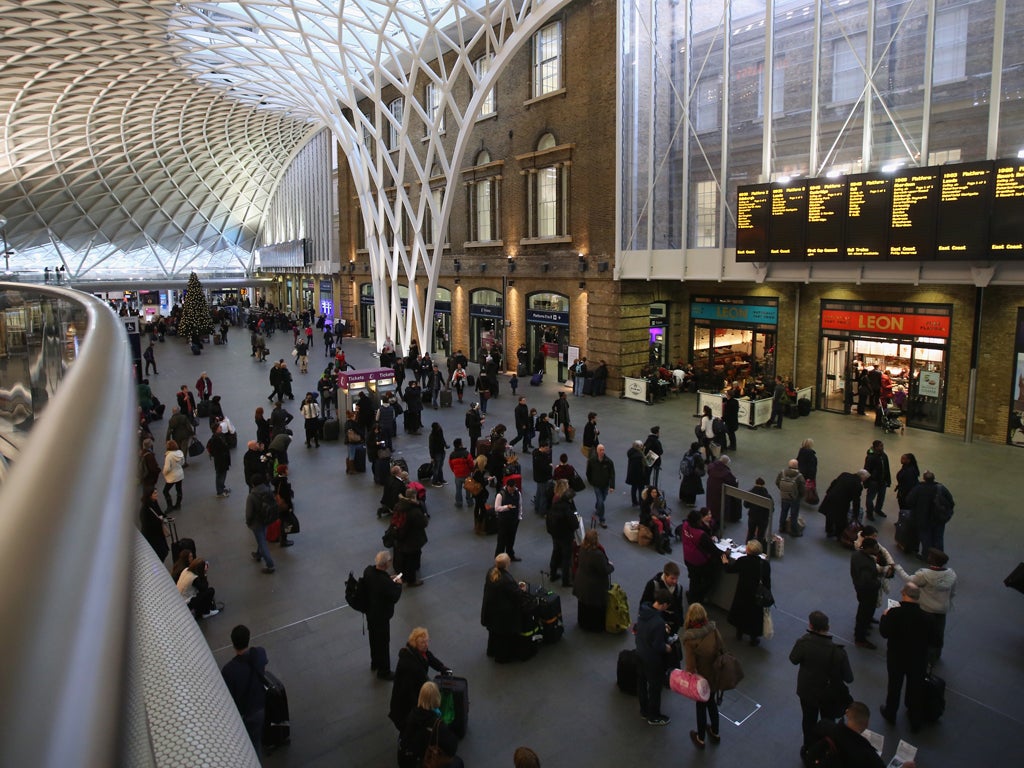Rail fares rise again, but it's not as bad as you think
As a frequent rail traveller across the continent, there are comparisons to be made


Not ideal timing: announcing an increase in train fares at well above the rate of wage rises on a day that saw Britain’s creaking railway system partially shut down because of the wrong kind of weather. Perhaps that is why the fares hike was not formally announced. Instead, the detail of the rises became evident only by trawling through the digital innards of the National Rail Enquiries website.
Lots of people are unhappy with the average 3.1 per cent rise in “regulated” fares; these tend to be the most expensive, “walk-up” tickets, covering anytime, off-peak and season tickets. The overall hike was not as substantial as it might have been, because the Chancellor reduced the annual increase from its usual “RPI plus 1 per cent” formula to RPI, or at least the percentage as it stood last July. Even so, Bob Crow, general secretary of the RMT, described the rise as “outrageous racketeering”. He added that the British “pay the highest fares in Europe to travel on overcrowded, under-staffed and unreliable services”.
Well, as a frequent rail traveller and observer of rail systems across the continent, I beg to differ. Some of our fares do look frankly punitive: the late, great Brian Redhead would be dismayed to see that a one-way, rush-hour train from his Macclesfield home to the BBC’s Today programme in London will cost £157 from the New Year. (He might, though, be impressed to see that on normal days the journey takes just 107 minutes.) The Heathrow Express, which stays at £20 for a 15-minute journey, remains one of the most expensive per-mile trips in Europe. But for higher fares the length and breadth of a nation, try Switzerland or Norway.
And while the French, Germans, Italians and Spanish enjoy lower “ walk-up” fares per mile than us, they have nothing like the same range of good-value advance tickets that British travellers can access. Train operators have learned that the best way to manage an overstretched system is to incentive those with flexibility to shift to off-peak services. Everyone has their price – and if the people of Macclesfield are prepared to book a few weeks ahead and choose one of the less-popular trains, the fare falls by 93 per cent to £12.50.
Even when the traveller is obliged by circumstances to buy a ticket on the day, he or she can halve the cost by hopping down the line to Stoke and taking a slower train with London Midland, or doing something clever involving a CrossCountry Advance fare (now available up to 10 minutes before departure) to Birmingham and the excellent Chiltern Railways from there.
Most other nations do not allow such options, yet; “Le prix est le prix,” as they used to say in the nation widely regarded as the best connected in Europe – France. SNCF, the nationalised railway, is learning from us, and Ryanair, to launch no-frills trains and lure more people off the roads.
Overcrowded? Certainly some commuter services are shamefully full. But overcrowded trains are, in one sense, a benefit. When all the seats are sold on a French long-distance services, they say “ Complet” – while at least you and I have the option of standing all the way to Crewe.
Join our commenting forum
Join thought-provoking conversations, follow other Independent readers and see their replies
Comments
Bookmark popover
Removed from bookmarks